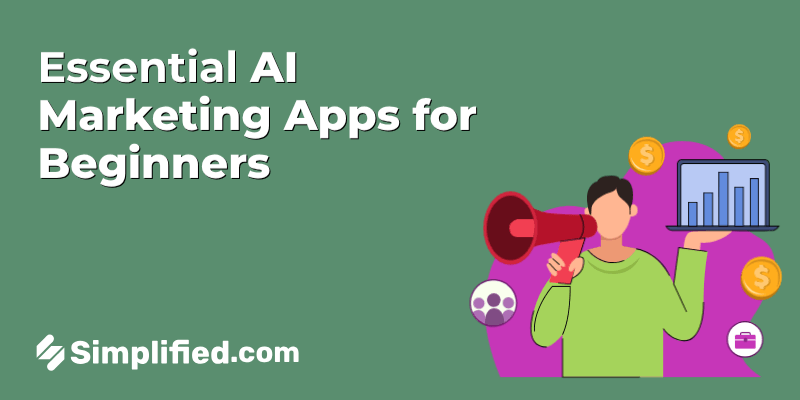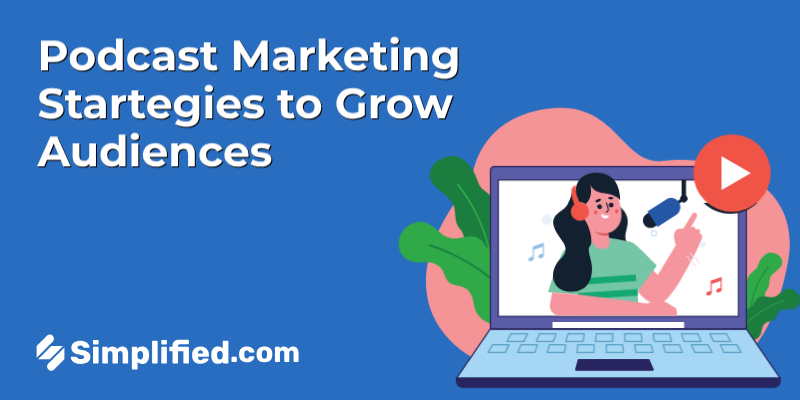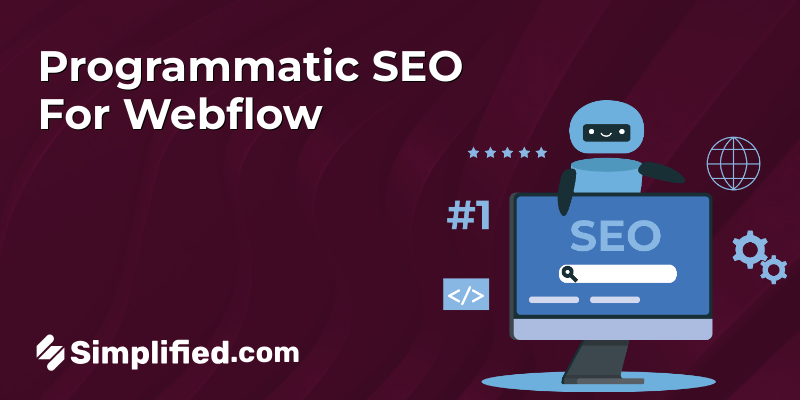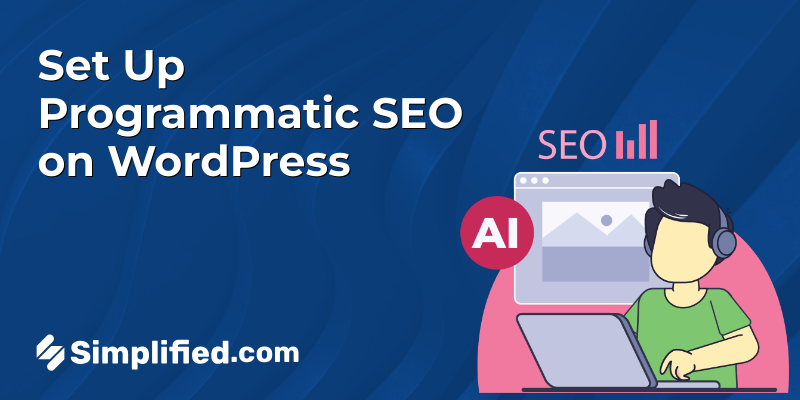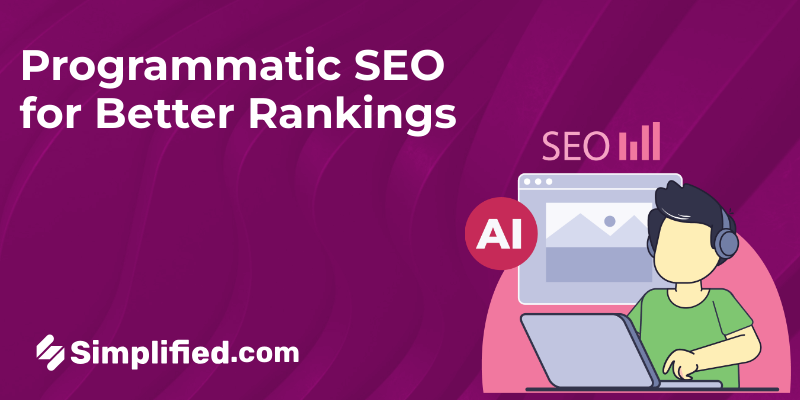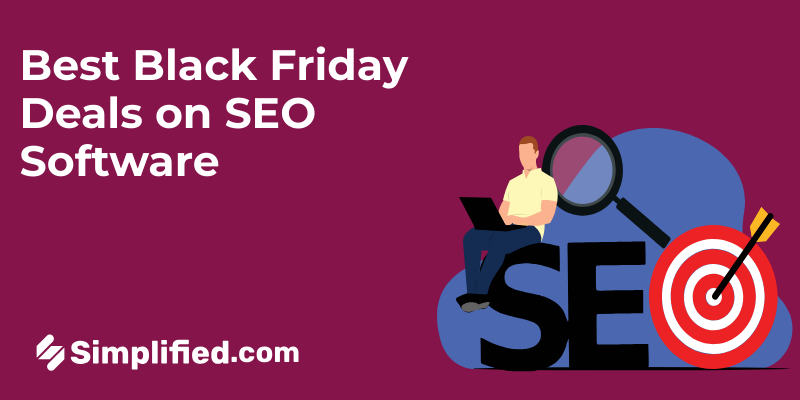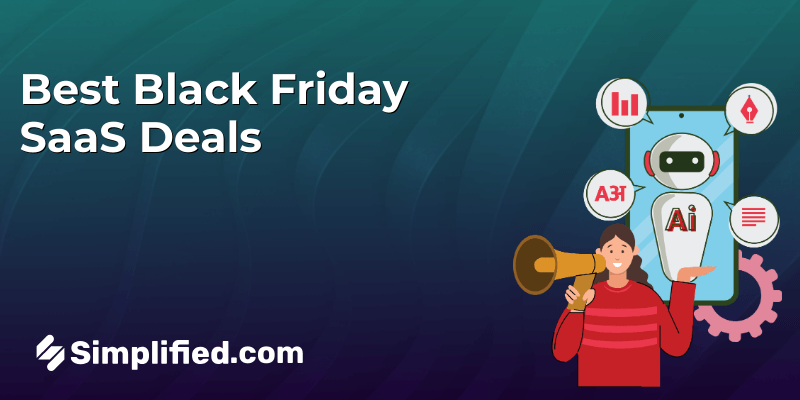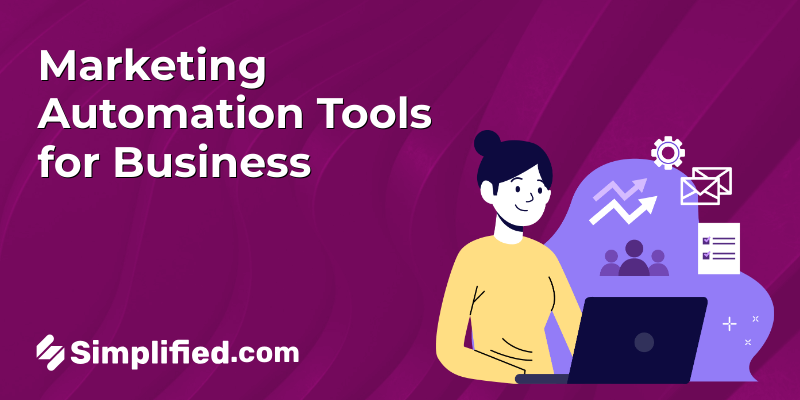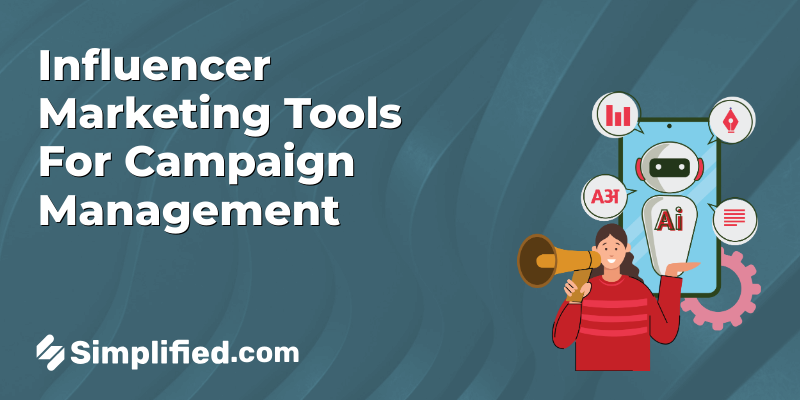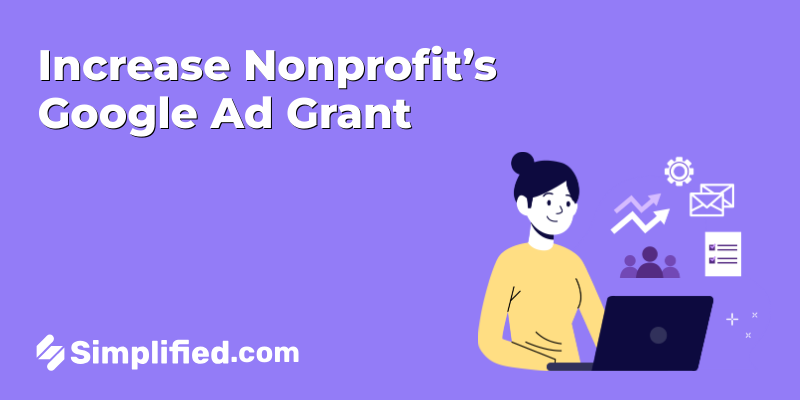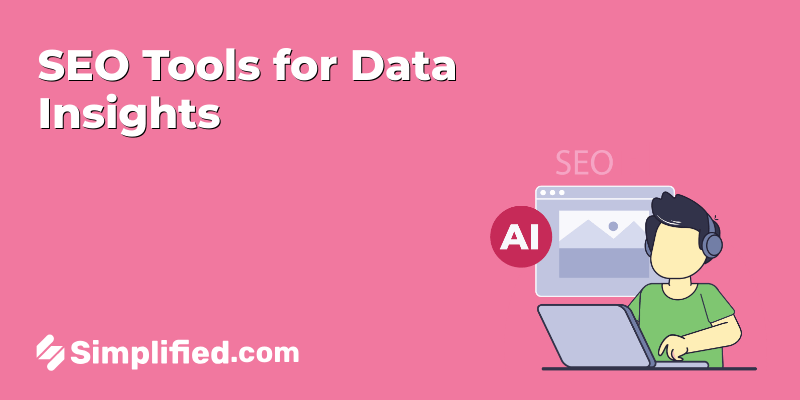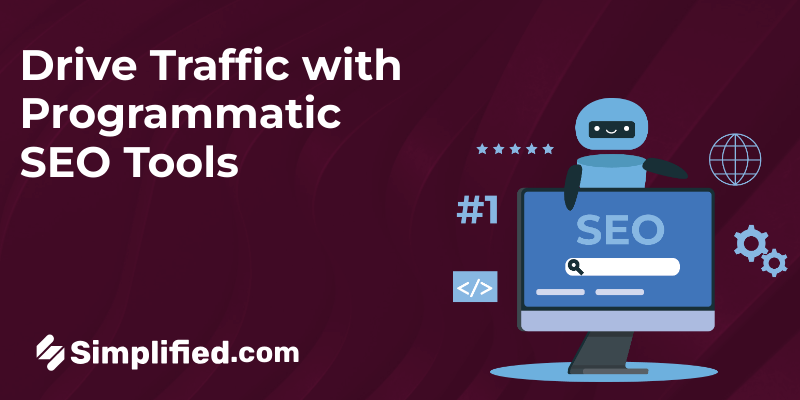
What if you could create thousands of optimized web pages without manually writing each one? Programmatic SEO makes this possible, offering a strategic way to scale websites while targeting specific keywords. With businesses relying heavily on organic search for growth, programmatic SEO tools have become indispensable.
According to a 2023 survey by Ahrefs, 68% of marketers believe automating SEO processes significantly boosts efficiency. This guide delves into the top tools that can help you drive more traffic using programmatic SEO.
What is Programmatic SEO?
Programmatic SEO refers to automating the creation, optimization, and management of large volumes of web pages. Instead of crafting content page by page, this method leverages data templates and algorithms to generate thousands of pages efficiently. It’s especially valuable for industries such as e-commerce, real estate, and travel.
For instance, an e-commerce store could use programmatic SEO to create pages for each product variation—saving time while capturing long-tail keyword traffic. In an era where fast SEO is crucial, this approach offers a competitive edge.
Best Programmatic SEO Tools for Driving Traffic
1. Screaming Frog
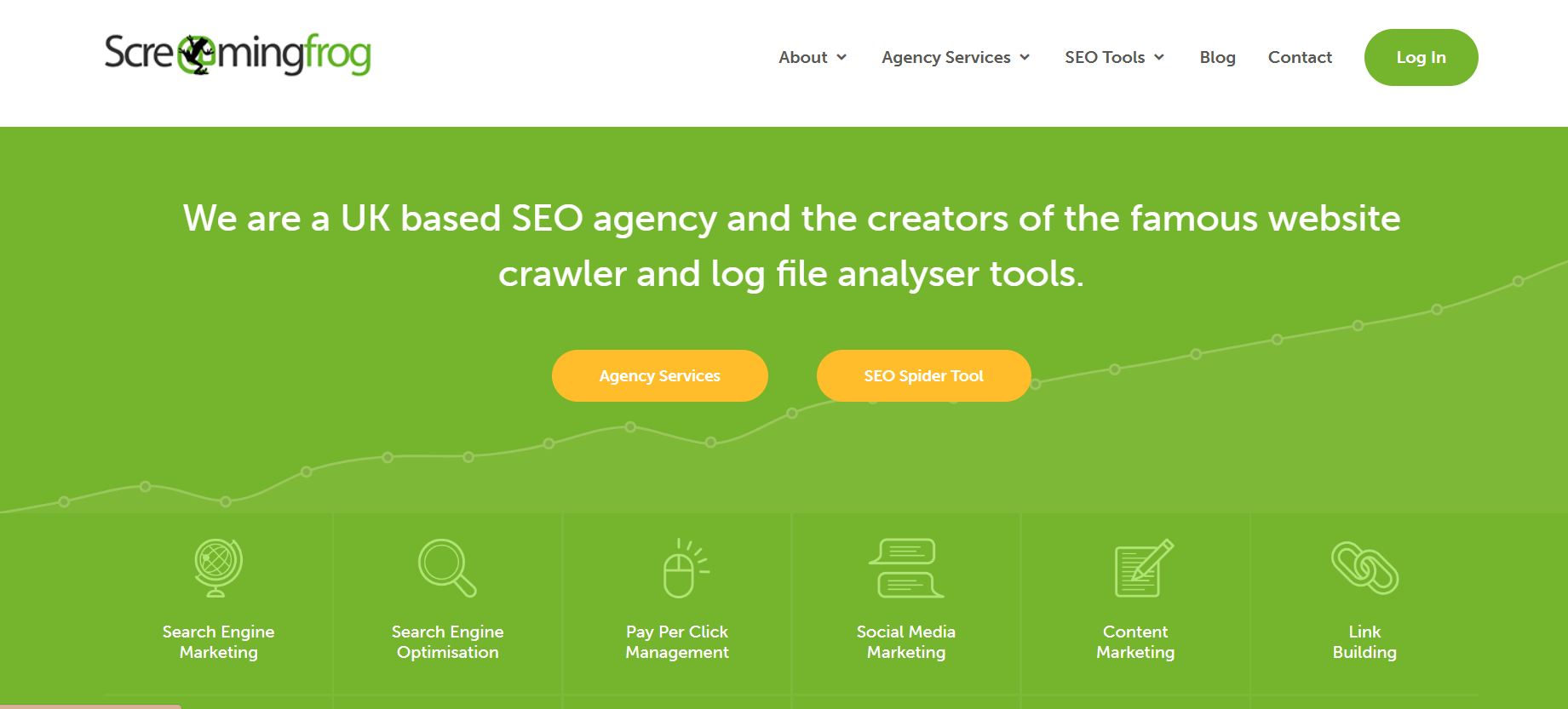
Brand Overview: Screaming Frog is a UK-based software specializing in website crawling and technical SEO audits. It is widely recognized for its efficiency in handling large-scale SEO challenges.
Features:
- Detects duplicate content and broken links.
- Optimizes metadata for thousands of pages.
- Enhances internal linking for better site structure.
Pricing: Offers a free version with basic features; the paid plan starts at $209/year.
Example: For an e-commerce site with thousands of products, Screaming Frog identifies issues like duplicate titles and meta descriptions, enabling quick fixes for better search visibility.
Bonus: Programmatic SEO: What It Is and How to do It Successfully
2. Ahrefs

Brand Overview: Ahrefs is a comprehensive SEO toolset known for its robust backlink analysis and keyword research capabilities. Headquartered in Singapore, it serves as a go-to platform for marketers globally.
Features:
- Provides long-tail keyword opportunities.
- Tracks keyword rankings and site performance.
- Identifies content gaps for scaling.
Pricing: Plans start at $99/month.
Example: Ahrefs helps a real estate business discover niche keywords like “affordable apartments in Brooklyn,” allowing them to create targeted programmatic pages that attract local traffic.
3. SEMrush

Brand Overview: SEMrush is an all-in-one digital marketing suite offering tools for SEO, PPC, and content marketing. It’s popular among businesses looking to scale SEO efforts.
Features:
- Conducts site audits to identify technical issues.
- Analyzes keyword difficulty for programmatic campaigns.
- Tracks organic traffic growth.
Pricing: Plans begin at $129.95/month.
Example: A travel website uses SEMrush to identify location-based keywords like “hotels near Times Square,” generating pages that rank for high-conversion queries.
Bonus: How AI SEO Content Generators Improve Your Content Strategy
4. AirTable
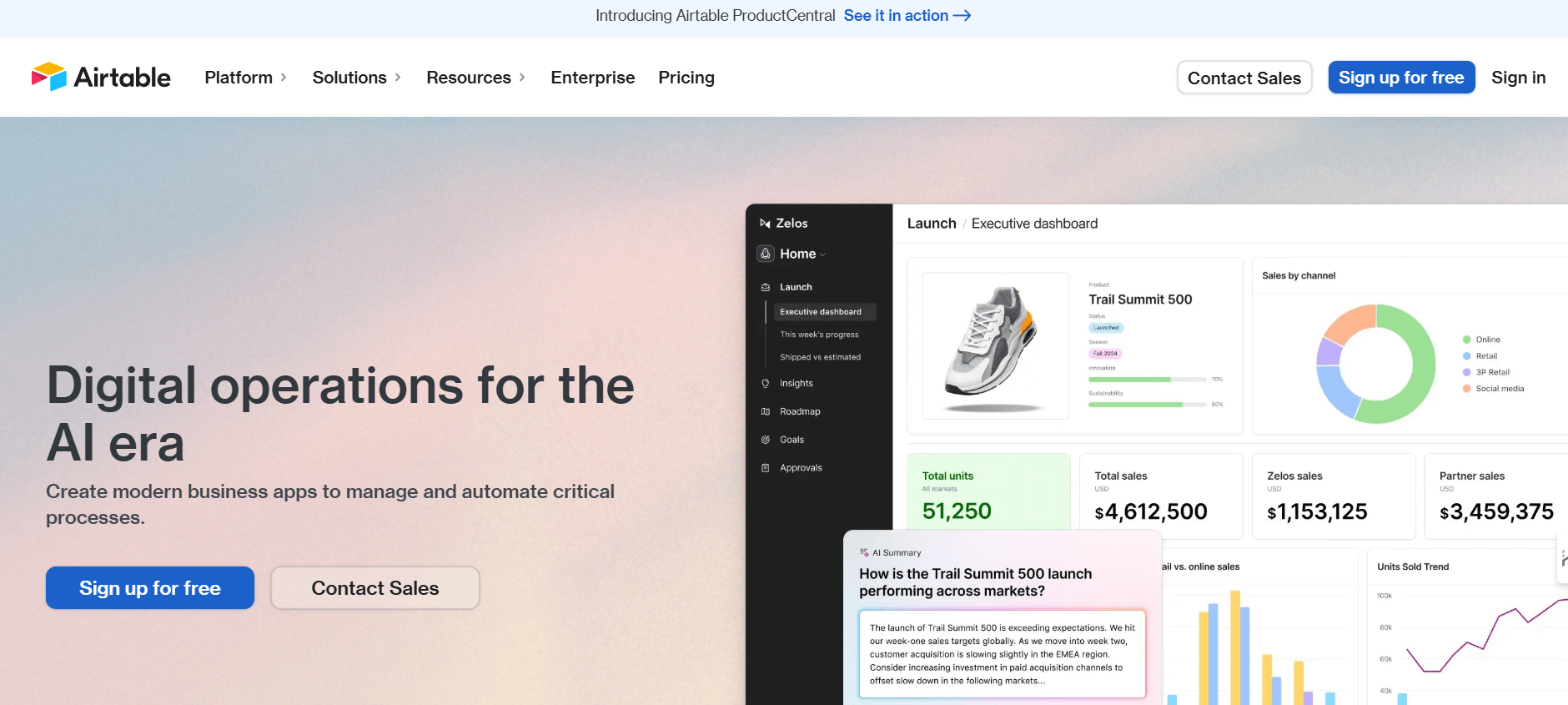
Brand Overview: AirTable is a cloud-based collaboration tool that combines the functionality of spreadsheets and databases. It’s ideal for managing programmatic SEO campaigns.
Features:
- Organizes large datasets for keyword and content planning.
- Facilitates team collaboration on templates.
- Improves workflow management.
Pricing: Free for individuals; premium plans start at $10/user/month.
Example: An education platform uses AirTable to structure course pages dynamically, targeting keywords like “online math classes for kids” and scaling content effectively.
5. Google Data Studio
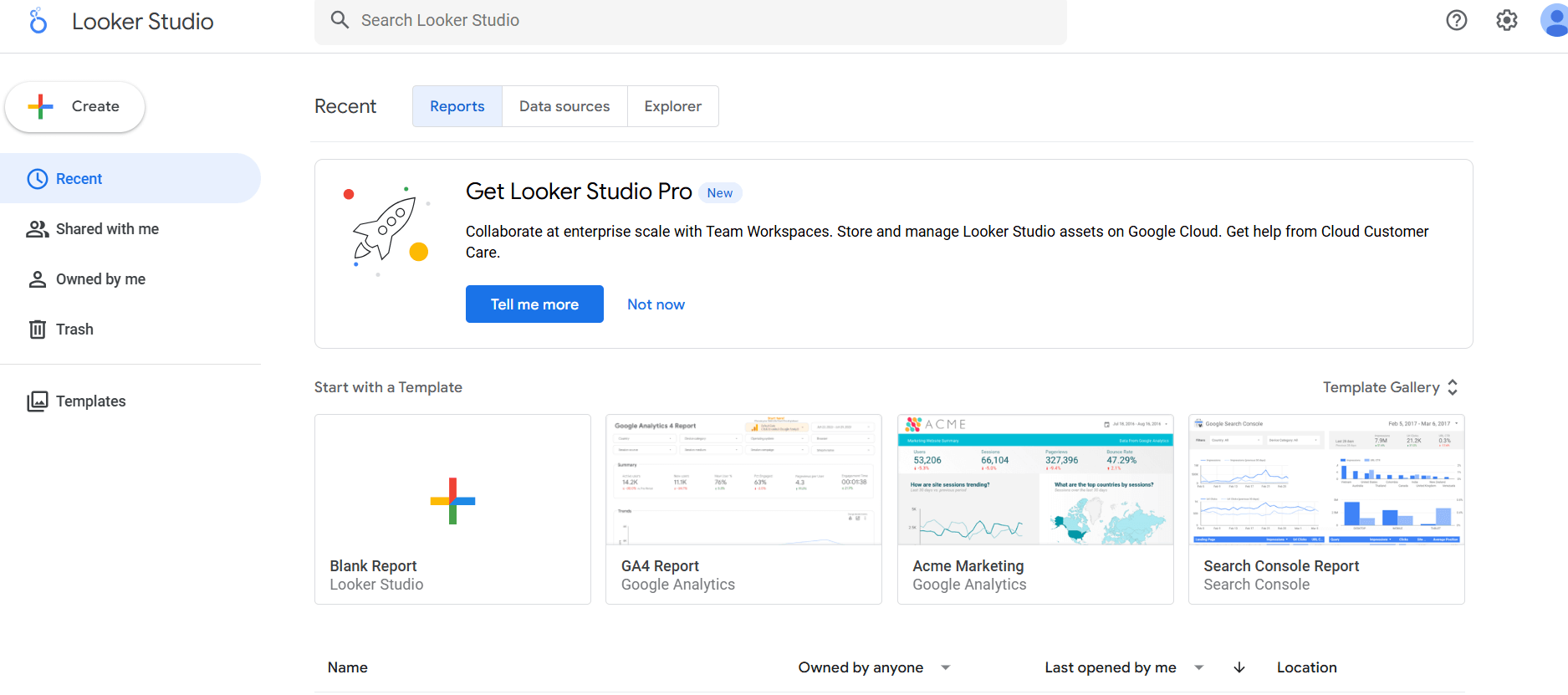
Brand Overview: A data visualization tool by Google, Data Studio is designed to simplify reporting and analytics.
Features:
- Integrates with Google Analytics and other tools.
- Creates custom dashboards to monitor keyword trends.
- Tracks the performance of programmatic pages.
Pricing: Free to use.
Example: A media website tracks organic traffic spikes for specific programmatic articles using Google Data Studio, refining its content strategy accordingly.
6. Wordable
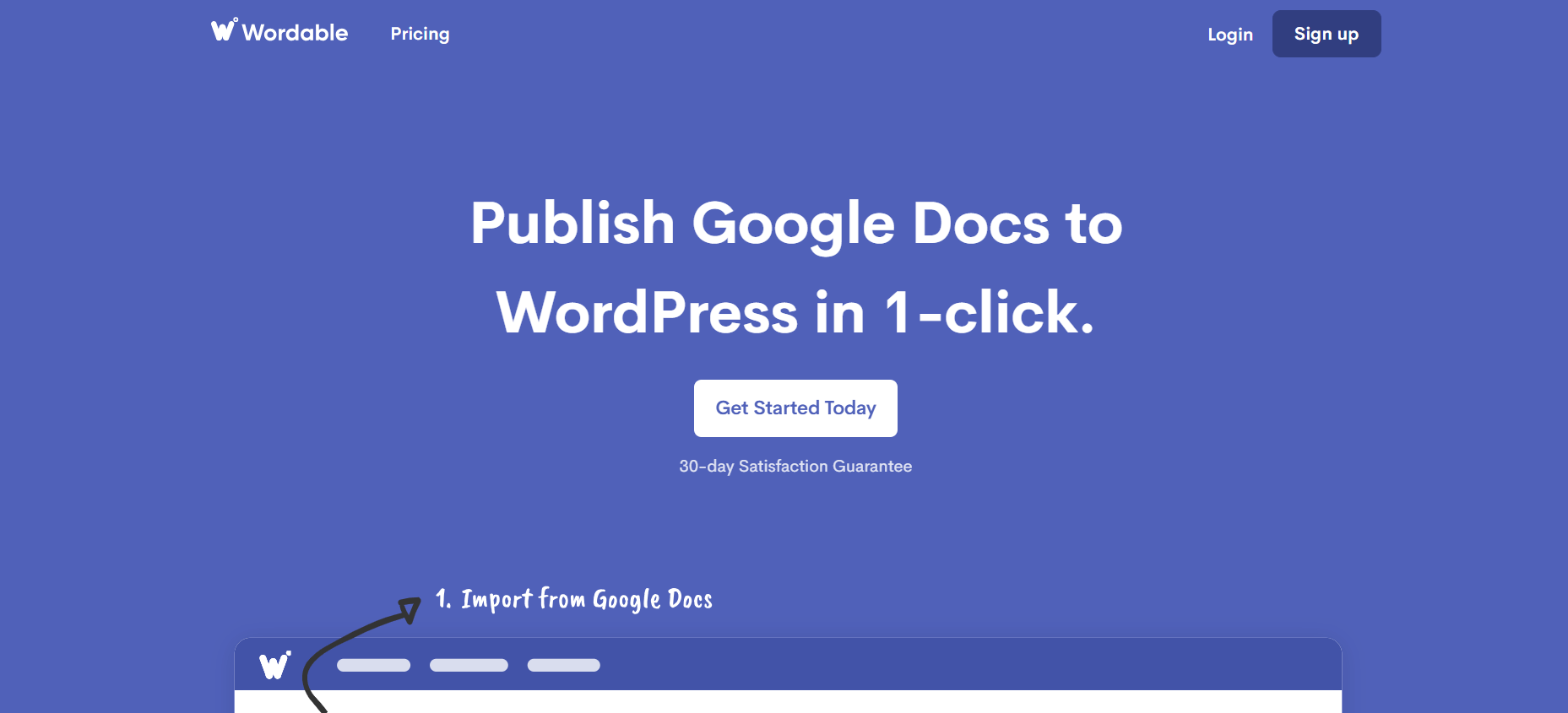
Brand Overview: Wordable is a publishing tool that facilitates smooth content uploads to CMS platforms like WordPress.
Features:
- Bulk uploads posts with consistent formatting.
- Converts Google Docs into CMS-ready content.
- Saves time on manual publication.
Pricing: Plans start at $19/month.
Example: A blog with weekly updates uses Wordable to automate uploading 50 programmatic pages, ensuring each maintains proper formatting and SEO tags.
Bonus: 10 Top AI SEO Tools: A Comprehensive Review and Comparison
7. Surfer SEO
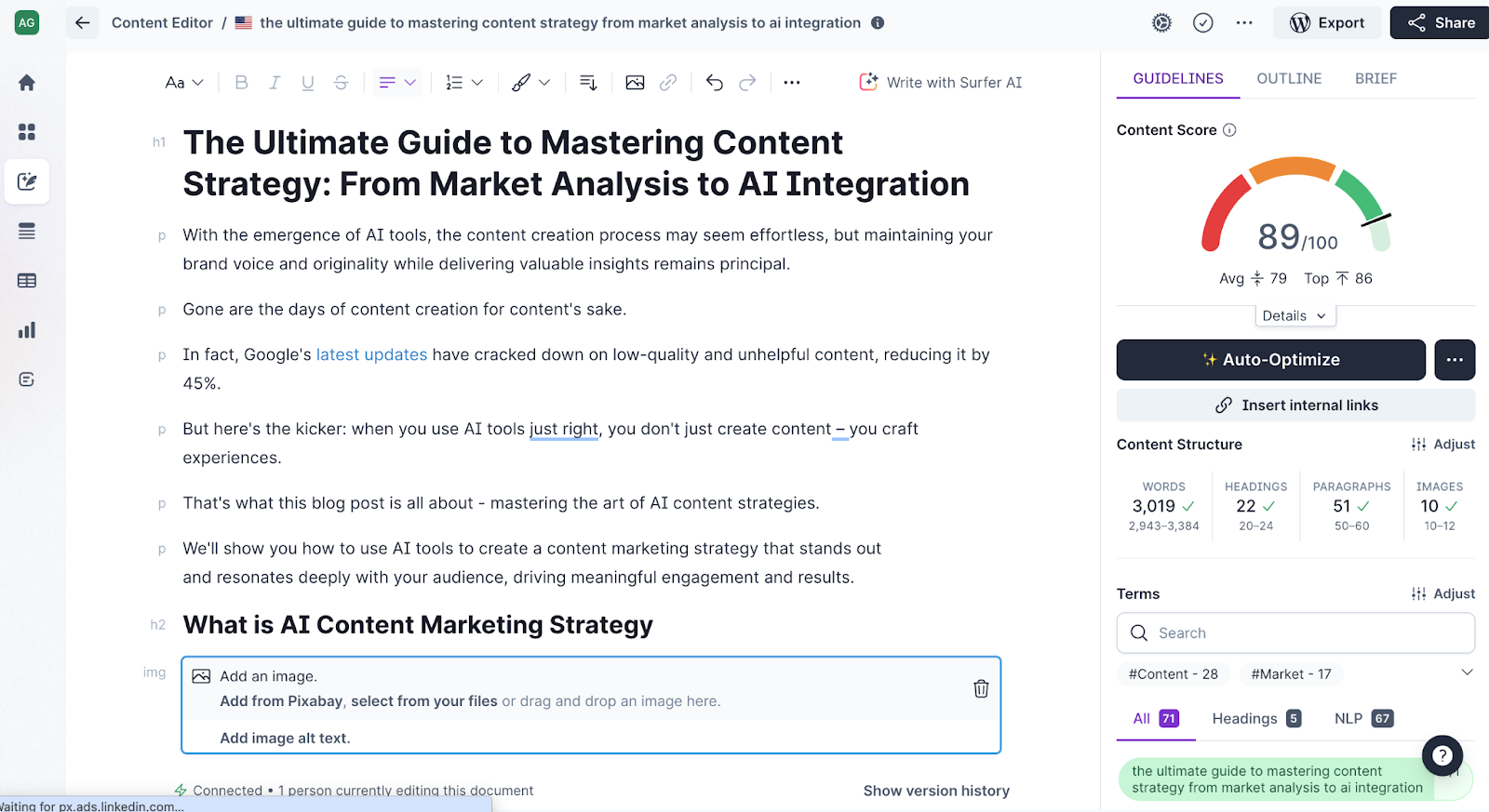
Brand Overview: Surfer SEO offers advanced on-page optimization tools, making it easier to align content with search engine requirements.
Features:
- Analyzes competitor SERP data for insights.
- Provides keyword density and structure suggestions.
- Supports optimization of programmatic pages.
Pricing: Plans begin at $49/month.
Example: A health website uses Surfer SEO to optimize programmatic pages like “best diets for diabetes,” improving their visibility on search engines.
8. Zapier

Brand Overview: Zapier automates workflows by connecting various apps and tools, making it a valuable asset for SEO professionals.
Features:
- Automates keyword updates and data syncing.
- Integrates CMS platforms with analytics tools.
- Simplifies repetitive SEO tasks.
Pricing: Free for basic use; premium plans start at $19.99/month.
Example: An online retailer uses Zapier to automate syncing of product details from spreadsheets to CMS, enabling the fast creation of programmatic pages.
9. Scrapy
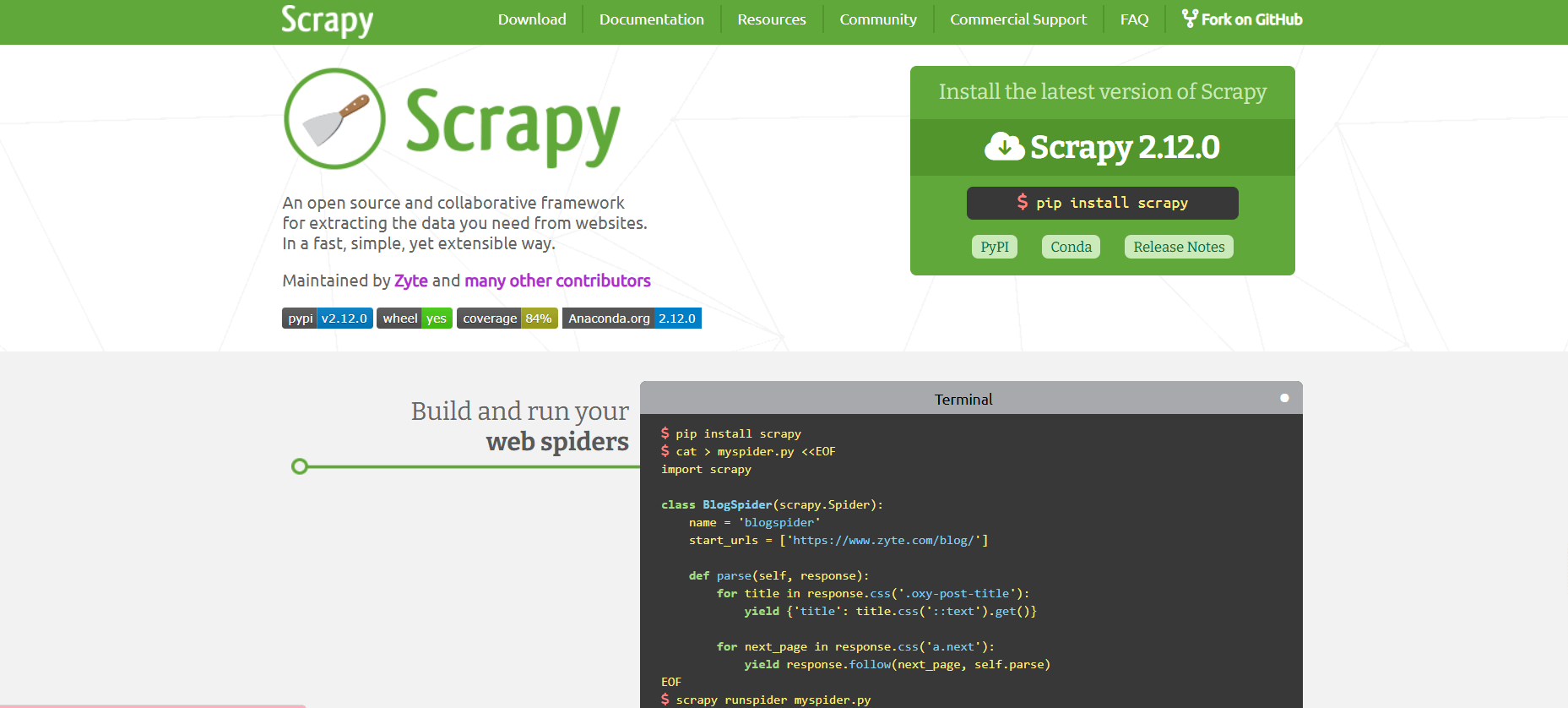
Brand Overview: Scrapy is an open-source Python-based web scraping tool used for gathering data at scale.
Features:
- Extracts data from competitor websites.
- Builds structured datasets for SEO templates.
- Supports large-scale content creation.
Pricing: Free to use.
Example: A directory site scrapes local business data to populate pages dynamically, targeting keywords like “best plumbers in Chicago.”
Bonus: AI for SEO: A Marketer’s Guide to Improved SEO Writing
10. Content Harmony
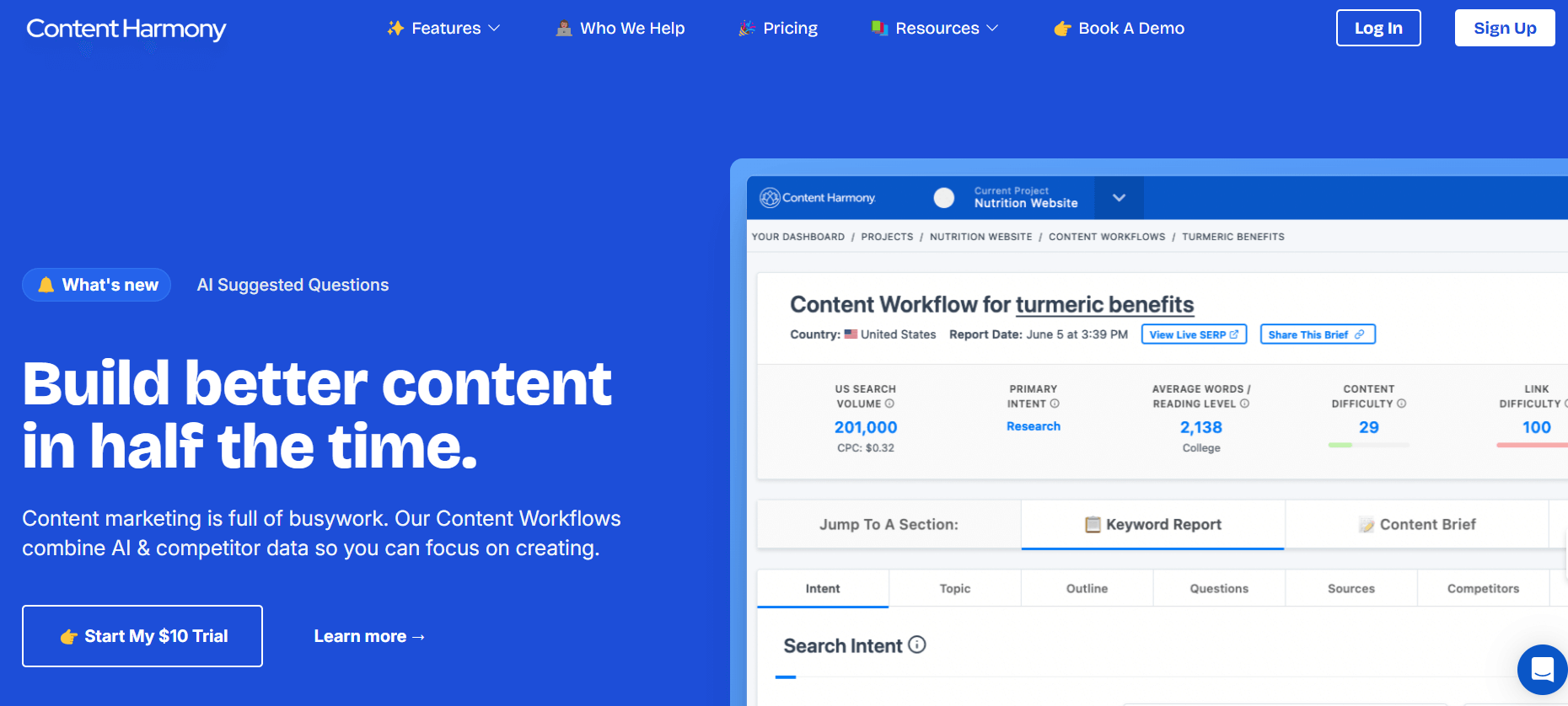
Brand Overview: Content Harmony focuses on simplifying keyword research and content planning for scalable strategies.
Features:
- Builds clusters of related keywords.
- Generates SEO-friendly content briefs.
- Aligns programmatic content with goals.
Pricing: Plans start at $50/month.
Example: A marketing agency uses Content Harmony to create programmatic landing pages targeting industries like “cloud storage for small businesses.”
11. Ubersuggest
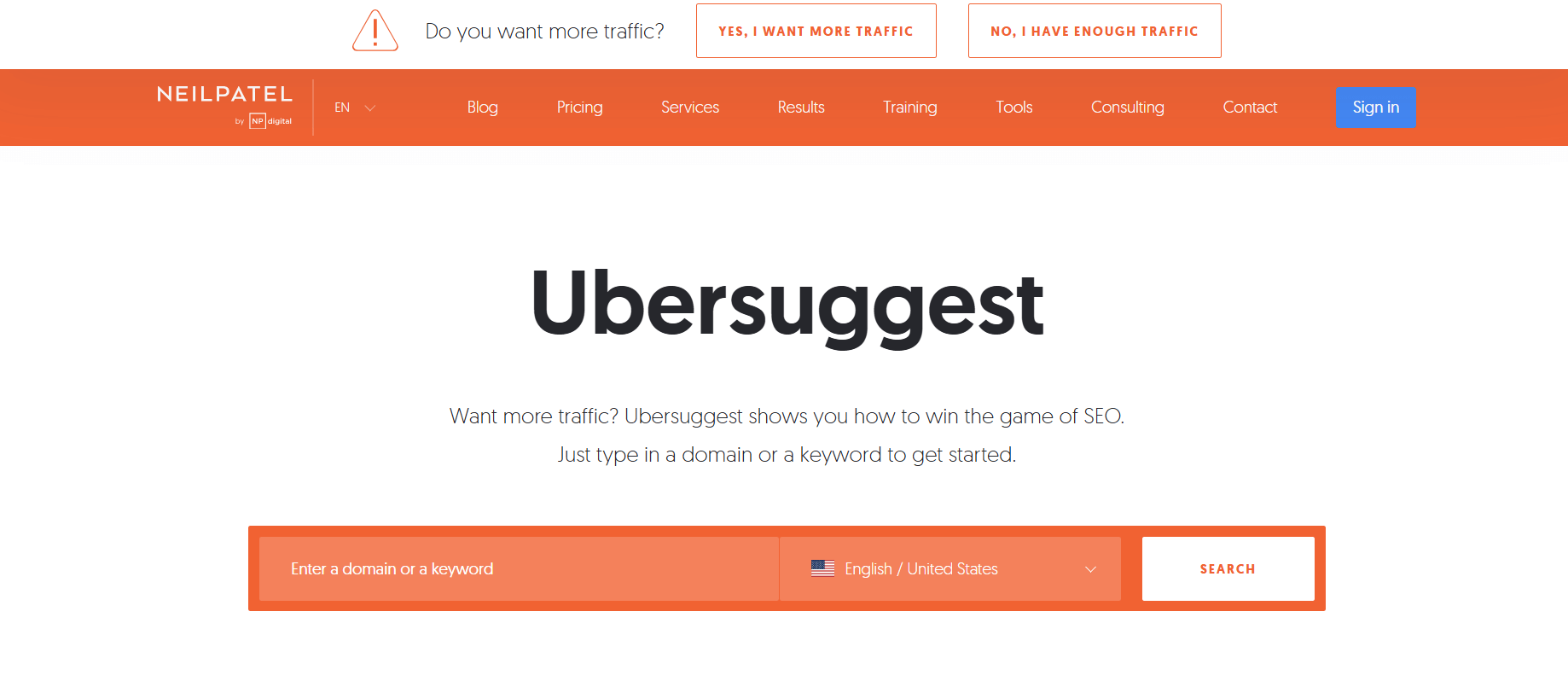
Brand Overview: Ubersuggest offers affordable SEO solutions with tools for keyword research and traffic analysis.
Features:
- Uncovers long-tail keyword opportunities.
- Analyzes traffic potential for keywords.
- Provides programmatic content suggestions.
Pricing: Free plan available; paid plans start at $12/month.
Example: A food blog identifies seasonal keywords like “summer salad recipes” and uses Ubersuggest to generate pages for targeted traffic.
Bonus: What are Meta Tags And How To Write Them For SEO Success
12. Webflow
Brand Overview: Webflow combines design and SEO capabilities, allowing developers to create dynamic, SEO-friendly websites.
Features:
- Offers customizable templates for scaling.
- Supports dynamic content management.
- Simplifies publishing programmatic pages.
Pricing: Plans start at $12/month.
Example: A SaaS company creates localized pages like “CRM solutions in Texas” using Webflow’s tools.
13. Python Libraries (e.g., Pandas)
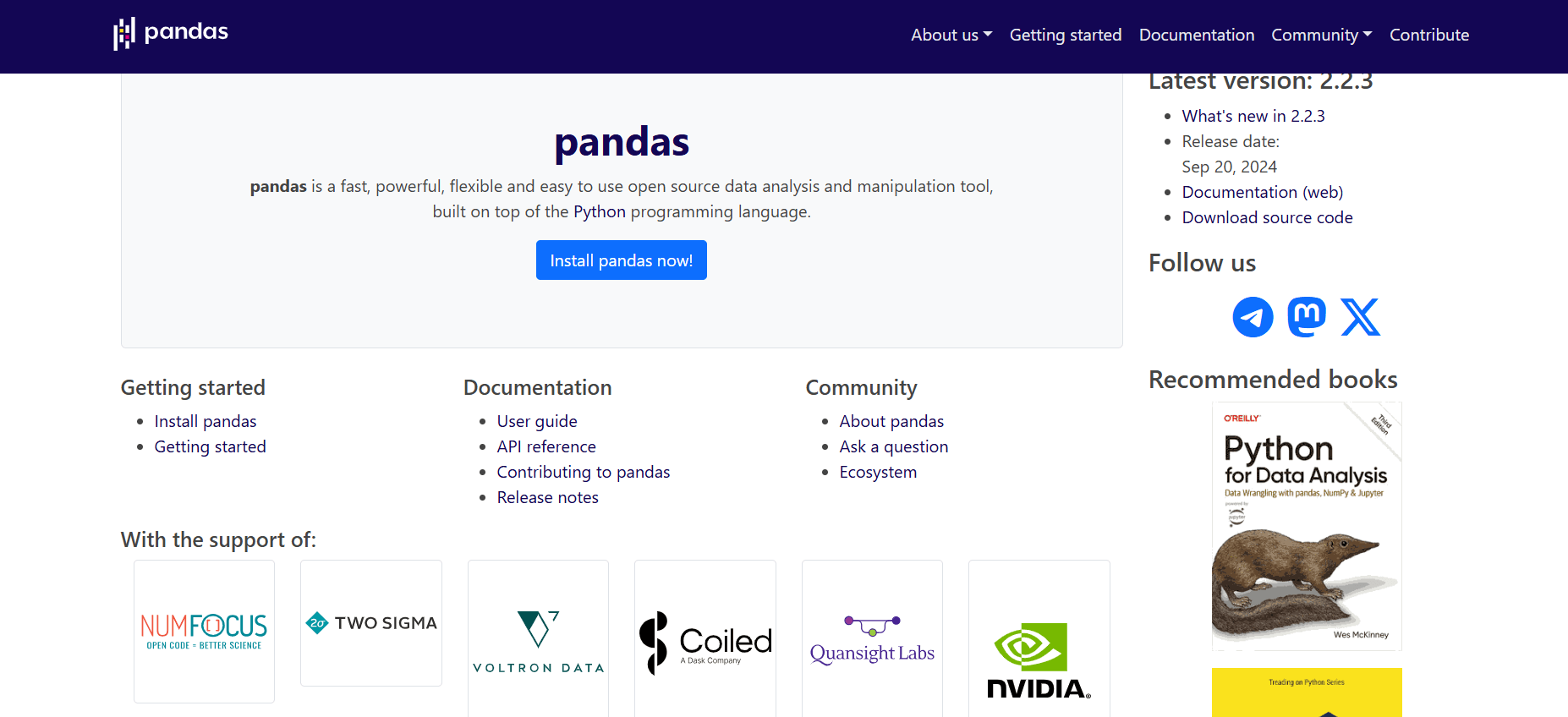
Brand Overview: Python libraries like Pandas provide advanced data manipulation capabilities, empowering technically-skilled marketers.
Features:
- Automates data analysis for keyword insights.
- Manages large datasets efficiently.
- Tracks SEO performance metrics.
Pricing: Free to use (requires Python setup).
Example: A tech blog automates its programmatic page creation pipeline using Pandas to analyze and organize vast datasets.
Bonus: Top SEO Analytics Tools for Digital Marketers
14. Notion

Brand Overview: Notion is a productivity and collaboration tool that supports SEO project management.
Features:
- Centralizes project workflows and milestones.
- Tracks extensive keyword and content datasets.
- Enhances team collaboration on SEO projects.
Pricing: Free for personal use; team plans start at $8/user/month.
Example: An agency uses Notion to manage workflows for creating 1,000 programmatic pages targeting local service keywords like “cleaning services in Miami.”
How Simplified AI Workflow Enhances Programmatic SEO Strategies:
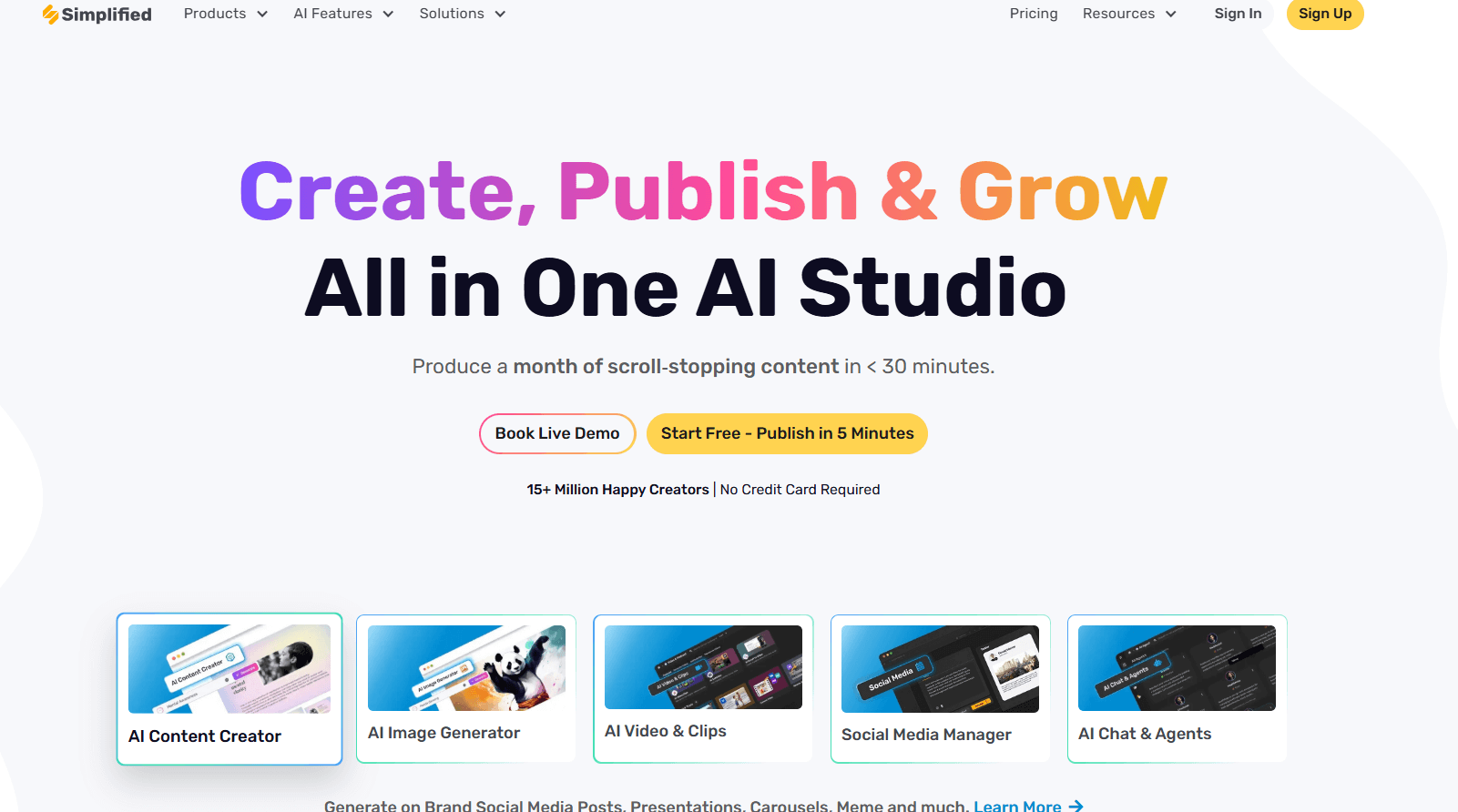
Simplified AI can significantly enhance programmatic SEO strategies in several ways:
- Dynamic Content Creation: Automates meta titles and data for large product catalogs, such as generating unique descriptions for thousands of products in an e-commerce store.
- Internal Linking Automation: Establishes relevant internal links across a content library. For example, linking related blog posts on a SaaS website.
- Keyword Optimization: Inserts keywords dynamically into content templates. For instance, tailoring real estate pages for “apartments in [City].”
- Custom Templates: Quickly creates pages with AI templates for specific campaigns, like seasonal offers in online retail, making it easier to execute SEO at scale.
By integrating Simplified AI into programmatic SEO strategies, businesses can improve efficiency, enhance content quality, and ultimately drive more traffic to their websites.
Conclusion
programmatic SEO is a powerful strategy that can help businesses drive significant traffic to their websites. By utilizing the right tools, marketers can automate various aspects of the SEO process, allowing them to focus on strategy and creativity. The tools mentioned in this blog, such as Ahrefs, SEMrush, and Surfer SEO, are essential for implementing effective programmatic SEO strategies. By understanding what programmatic SEO is and how to utilize these tools, businesses can achieve fast SEO results and enhance their online presence.

